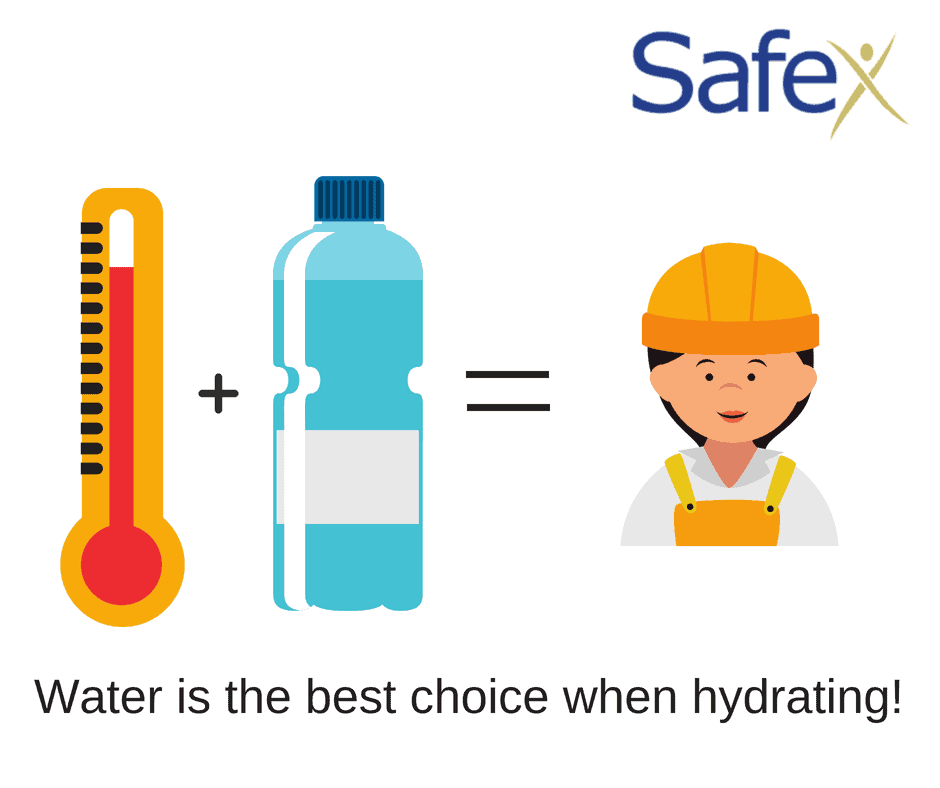Global warming has done a number to the Midwest this summer. With another month of hot temperatures expected, it’s important to know the signs of heat stress and how to prevent it.
Your enemy: heat!

Heat stress can take many forms including:
Heat Exhaustion– Occurs when fluids and salt lost by sweating are not replaced.
Symptoms:
- sweaty
- weak or tired, possibly dizzy
- nausea
- normal or slightly higher body temperature
- pale, clammy skin (sometimes flushed)
- excess sweating
Heat Stroke– The most dangerous of them all. It occurs when the body fails to regulate its core temperature. People experiencing heat stroke stop sweating and cannot get rid of excess heat. It’s life threatening if not treated.
Symptoms:
- mental confusion, delirium, fainting, or seizures
- body temperature of 106ºF or higher
- hot, dry skin, usually red or bluish color
Call 911 if you suspect heat stroke!
Heat Cramps- These can be the first sign of trouble. They occur when a worker drinks a lot of water but does not replace salts lost from sweating. Tired muscles – those used for performing the work – are usually the most likely to have the cramps.
Symptoms:
- cramping or spasms of muscles
- may occur during or after the work
Heat Syncope (Fainting)– Usually happens to people who are not used to working in the heat. It can be avoided by not standing still and becoming fully acclimated to the head.
Symptoms:
- brief loss of consciousness
- sweaty skin, normal body temperature
- no signs of heat stroke or heat exhaustion
It’s possible to defeat the heat this summer and work safely outside. We recommend:
- Drinking plenty of fluids such as water and sports drinks, avoid caffeinated drinks.
- Wearing cool lightweight clothing, loose clothing.
- Modifying work schedules to avoid working during hottest hours of day.
- Taking frequent water breaks in shaded areas.
- Providing training about hazards leading to heat stress and how to prevent them.
- Establishing a complete heat illness prevention program.

